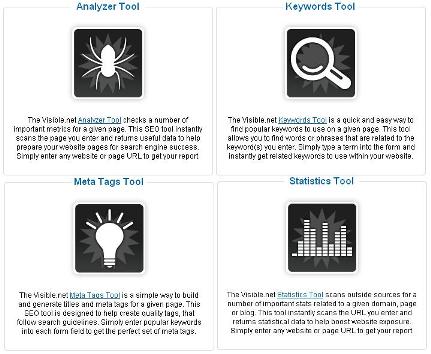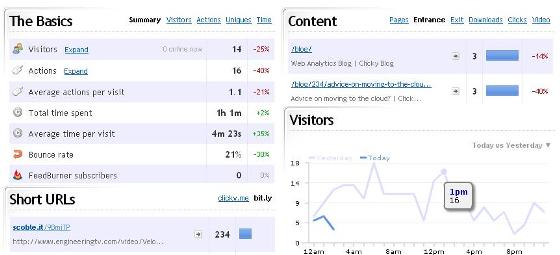1stwebdesigner |
| Things And Tools To Consider When Analyzing Competitors Posted: 15 Oct 2010 02:00 PM PDT
Ready for research? Let’s start right now!
1. Identify Your CompetitorsFirst thing to do is to identify your competitors. I find SimilarSites.com accurate and one of the most simplest tool to use. It has a voting system for every result if it is similar or not and SimilarSites also gives you a view of what your competitors are good at: www.example.com is rank 1 in WordPress tutorial, 13 in Photoshop tutorial, 2 in web resources, etc. 2. Search Engine Ranking
Image by: Christian Ferrari It is important that you know Page Rank. Google ranks websites according to their popularity, and obviously it gives you an idea on how competitors use their resources effectively. An alternative to Google Page Rank is SEOmoz.com. Free registration and you are good to go with their Trifecta Tool Report. They have their own ranking system which I fancy, reading “44% – Somewhat Important”. Better to top all rankings instead of just one, right? However, regular members can only run one report per day. 3. Traffic is good for business
Analyzing your competitors’ traffic gives you an idea on the number of visitors they get. Google Trends, Alexa, GetClicky are good tools to compare statistics, they let you see on what regions the website is doing great as well as what search terms prospect visitors might search for. It is also good to note competitors that are not doing well in order to avoid being like them, more like a grave example. The next thing to know, after learning what websites have good traffic, is how effective their keywords and link building is. 4. Importance of Keywords
Image by: Dora Pete It all comes down to keywords, it tells search engines the content of your site. Wrong keyword means no traffic. A successful competitor knows full well what keywords to use to harvest visitors to their site. A tool to see good keywords in your niche is SEOdigger.com. It provides a list of domains with common keywords and shows the position of the site for the search query in Google and what among them brings more traffic. It gives you enough facility to compare several competitors’ performance in SEO. There are many instances when a higher PR website is outmatched by those with lower PRs, this is due to careful manipulation and good use of keywords. Thankfully you can see what keywords your competitors are using and which of them has the biggest impact. That’s what I call handy. I almost forgot to mention Google Wonder Wheel. It provides relevant terms of your search query of what is gaining popularity among searchers. Neat, eh? 5. Backlinks
Image by: Svilen Milev Backlinks do two things to help promote your site if done correctly. First it serves as a tunnel from a website to yours, if the referring website is of high standing the better. Second it boosts your keywords. Have I not said that it’s all about keywords? Knowing who the promoters are of sites within your niche is like learning some of the enemy’s strategies. This may serve you well in terms of knowing what direction your linkbuilding should go. It will be a good thing if the website that links to your competitor will take interest in you as well. Remember that good competitors have good backlinks. 6. Social Networks
Image by: Sanja Gjenero Facebook is aiming to be the web’s standard for everything you do online. With its Open Graph,websites will customize themselves based on their users’ interests through the Like button. Imagine logging in to Amazon and finding all of the things that interests you neatly arranged on their home page without even having to search for it. Just thinking about it makes me shiver! It is predicted that in the very near future, Facebook will be the one to drive more traffic on websites, the blood of e-commerce! And most likely other major networking sites will follow this lead. Consider following your competitors on Twitter and subscribe to their newsletter and blog. You may also want to search Twitter and see what people are posting about your search query and know how they’re feeling about it. Other tools to use:There are more than a hundred tools in the web for analyzing competition, below are some of the easiest to use: AlexaEstimates global traffic for websites. It is pretty flexible. You may compare statistics on the spot, who the audience are, worldwide traffic rank, and many more. Visible.netIt boasts 4 main tools in running reports for good estimate of site analysis, performance, and general recommendation. SEOprofiler.comProvides most of the information you need about backlinks. GetClickyAnother great tool to track web traffic. Boasts analytics in real-time. Google AlertsIf you feel like spying and be alerted whenever your competitors appear in the web then Google Alerts is right for you. It is pretty flexible and fast too. I remember using it to keep track of Harry Potter and in just a day almost 300 blogs, videos, news, and everything appeared about my search term! People are broadcasting about this fantastic website? Be alerted and see why. These are free tools that you can use to analyze your website and competitors. There are a lot of paid tools out there but most have the same usage as the tools above. Everywhere you go, information and correct execution leads to success. Good luck to all! |
| Learn How To build Killer Squidoo Lens For Website Promotion Posted: 15 Oct 2010 03:01 AM PDT
Squidoo is a fast growing website that allows ordinary people to build their own pages with unique themes. The page is called “lens”, and each user is called a “lensmaster.” Squidoo is also a community where you can post your ads and can even share your profit to other ads like google ads and amazon ads by posting their ads to your page for related sources. You can custom your post the way you want it to appear on the page by just basic clicks and simple text typing. Squidoo is also known for building link wheels which is a good method of driving traffic to a site. 1. Sign up For an AccountThe first thing you will do just like other websites is to create your Squidoo account. The process is very simple. You only need to follow simple instructions and supply the basic info about yourself. Then just click the button continue. 2. Create a lensAfter the registration process, the next thing you will do is to create a lens. Just click on create a lens button.Now you can be called a “lensmaster.” In creating a lens, there are a lot of things to do. We will take the process step by step. 3. Lens subjectYou must think of a subject which is related to your products or its up to you to decide for a better subject. You can also use the brand of the product or you product keyword.
Just supply the information and proceed to the next step.
4. Lens Title and URLThink of a better an interesting title and pick your URL, the link where your lens can be located.Then pick a category for your lens and choose for the choices of the contents of your lens.
5. Lens KeywordPick for the best keyword for your lens to help people find your lens.
Now you already have created your lens. 6. Organize your lensThis will be the most interesting step in creating your lens. This is where you will custom your own page on how it will appear publicly.
You can organize you modules and add it to your lens.
Create and set up your module by simply supplying the needed information. Click save and you can also edit it if you want to change it.
Your module has been saved already. You can add images, videos, news,RSS, comment box and other ads from Amazon and Google. 7. Publish your lensIf you have done organizing and designing your lens, you can view the preview of your lens. If you think it looks good, then you can publish it. Congratulations! You just have completed your Squidoo lens. |
| You are subscribed to email updates from 1stwebdesigner - Graphic and Web Design Blog To stop receiving these emails, you may unsubscribe now. | Email delivery powered by Google |
| Google Inc., 20 West Kinzie, Chicago IL USA 60610 | |






 Image by:
Image by: 

















Comments (0)
Post a Comment